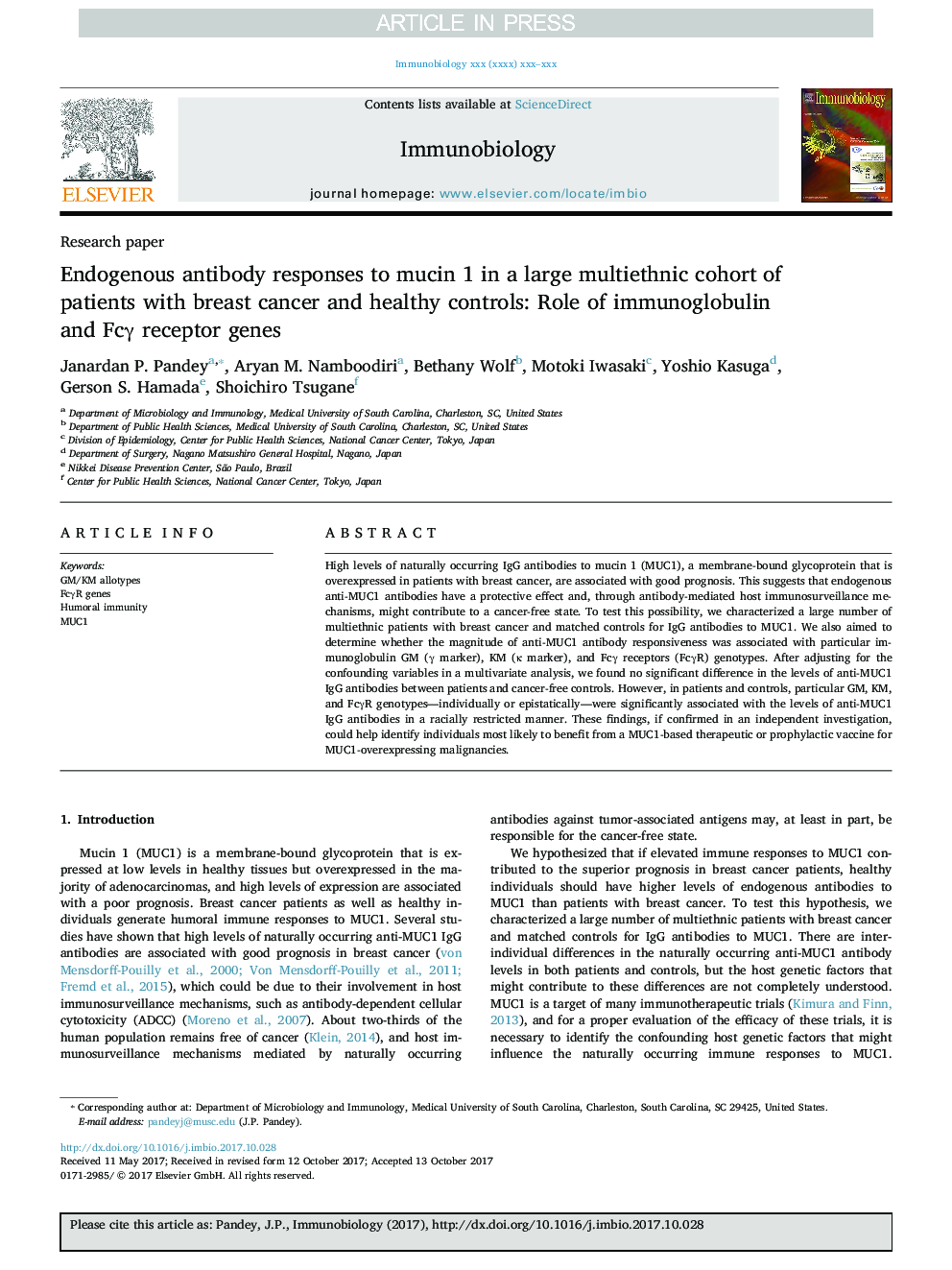| Article ID | Journal | Published Year | Pages | File Type |
|---|---|---|---|---|
| 8472070 | Immunobiology | 2018 | 5 Pages |
Abstract
High levels of naturally occurring IgG antibodies to mucin 1 (MUC1), a membrane-bound glycoprotein that is overexpressed in patients with breast cancer, are associated with good prognosis. This suggests that endogenous anti-MUC1 antibodies have a protective effect and, through antibody-mediated host immunosurveillance mechanisms, might contribute to a cancer-free state. To test this possibility, we characterized a large number of multiethnic patients with breast cancer and matched controls for IgG antibodies to MUC1. We also aimed to determine whether the magnitude of anti-MUC1 antibody responsiveness was associated with particular immunoglobulin GM (γ marker), KM (κ marker), and Fcγ receptors (FcγR) genotypes. After adjusting for the confounding variables in a multivariate analysis, we found no significant difference in the levels of anti-MUC1 IgG antibodies between patients and cancer-free controls. However, in patients and controls, particular GM, KM, and FcγR genotypes-individually or epistatically-were significantly associated with the levels of anti-MUC1 IgG antibodies in a racially restricted manner. These findings, if confirmed in an independent investigation, could help identify individuals most likely to benefit from a MUC1-based therapeutic or prophylactic vaccine for MUC1-overexpressing malignancies.
Keywords
Related Topics
Life Sciences
Biochemistry, Genetics and Molecular Biology
Cell Biology
Authors
Janardan P. Pandey, Aryan M. Namboodiri, Bethany Wolf, Motoki Iwasaki, Yoshio Kasuga, Gerson S. Hamada, Shoichiro Tsugane,
